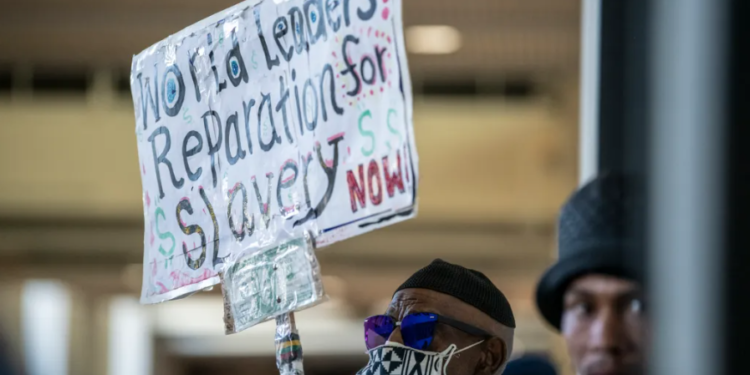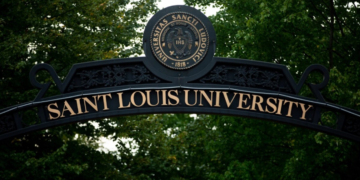Dec 2, 2024 Story by: Editor
Dr. Cheryl Grills, a clinical psychologist, and professor at Loyola Marymount University, has emerged as a key figure in California’s reparations movement. She directed the university’s Psychology Applied Research Center and served on California’s Reparations Taskforce from 2021 to 2023, following her appointment by Governor Gavin Newsom. Additionally, she is a commissioner on the National African American Reparations Commission (NAARC) and co-founded the Alliance for Reparations, Reconciliation & Truth (ARRT).
Dr. Grills explained that ARRT was created to oversee the implementation of recommendations made by the task force and ensure alignment with both the task force’s intent and international standards. She emphasized the importance of educating the public about reparations to facilitate informed discussions. “The point of ARRT is really very basic and straightforward. One, to shepherd the ongoing work of implementing the recommendations that we proposed, and to make sure that what is recommended aligns with the intent and spirit of those recommendations and that all of that aligns with the UN standards; and then to educate the public about reparations,” she said.
A major focus of ARRT is addressing a lack of understanding about the history of racism, structural inequities, and the task force’s charge to examine harms caused by enslavement and its aftermath. Dr. Grills observed, “You have a lot of people who don’t know the history; who don’t understand racism, structural or otherwise; who don’t recognize the lingering harms from enslavement and post-enslavement racism; and who don’t understand what the charge of the task force was, which was to look at enslavement and post-enslavement harm.”
California, often perceived as progressive, has a complicated racial history that contrasts with this perception. Dr. Grills noted that the state-enforced slavery-era policies and had significant KKK influence in its governance. “We were, in some instances, worse than other states in terms of how we would enforce the rules of other states. If you were of African ancestry and came to California [and] your owner lost track of you or came of your own accord, California bent over backward to ensure that you were re-enslaved in the state you came from,” she explained.
This darker side of California’s history is often overlooked. Dr. Grills pointed out, “People seem to think that California is so progressive on all fronts when that is just not the case. There’s the Ku Klux Klan and how prominent they were, and how … dangerous they were to Black lives. But [people] think of that in terms of the South. What they don’t realize is that some California at some points in time was worse than the South in the actions of the KKK and [its] infiltration into state, city, and county government … who then made sure that the agenda of racism was delivered without consequence.”
As a psychologist, Dr. Grills highlighted the potential for reparations to positively impact mental health in Black communities, while also cautioning against approaches that could cause further harm. “It can improve, but depending on how California handles this, it can harm us too. I’m saddened by the fact that we have to make this distinction – direct descendants or non-descendants – because post-enslavement if you were Black, you could be harmed as severely as someone who was a direct descendant,” she explained.
Dr. Grills described the mental health toll of racial trauma, likening it to a physical injury that is repeatedly denied by others. “[Imagine] if somebody threw a boulder and hit me in the back of my head… I’m hurting, I’m bleeding, I’m traumatized… but everybody that walks by me says, ‘Nothing’s wrong with you, nothing happened,’” she said.
Reparations, she argued, can provide validation and open pathways for addressing the systemic inequities that have persisted for generations. “Reparations becomes a way to create that validation … opening a pathway for correcting what have been multigenerational processes that make it difficult for us to … have equity on any of the basic indicators of quality of life: education, housing, wealth creation, etc.,” she said.
By fostering validation and encouraging collective action, Dr. Grills believes reparations have the potential to promote healing and well-being for Black communities. “Now, you’re talking about people who are actively engaged in their own well-being, with allies at their side. That has the potential for healing,” she concluded. Source: Lasentinel

















